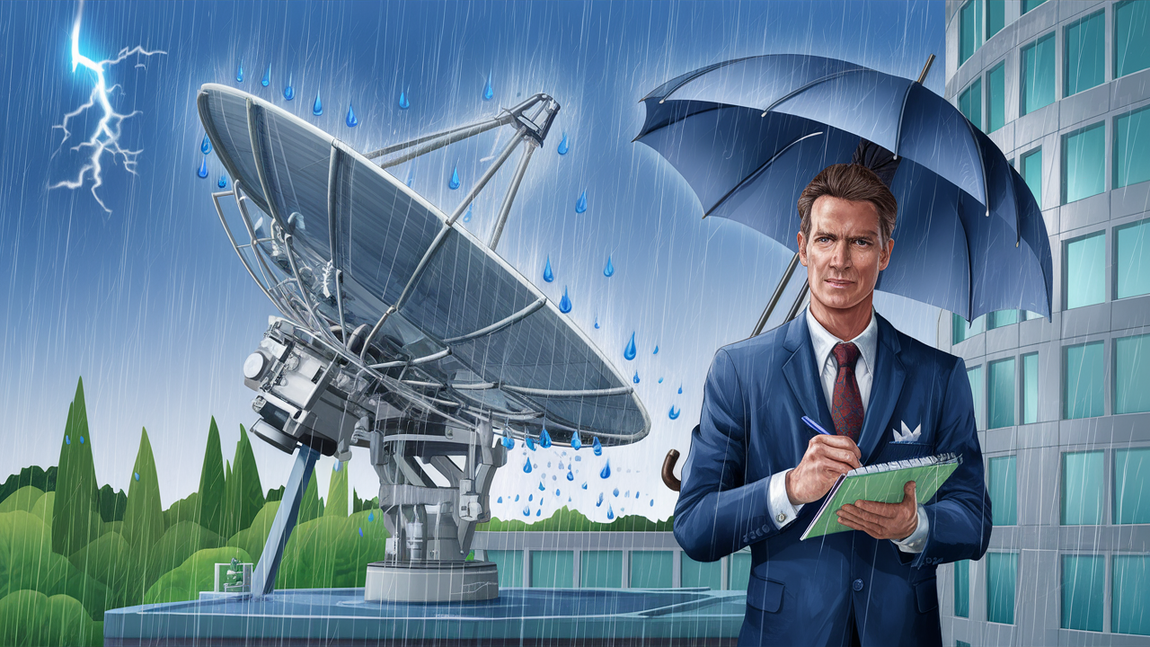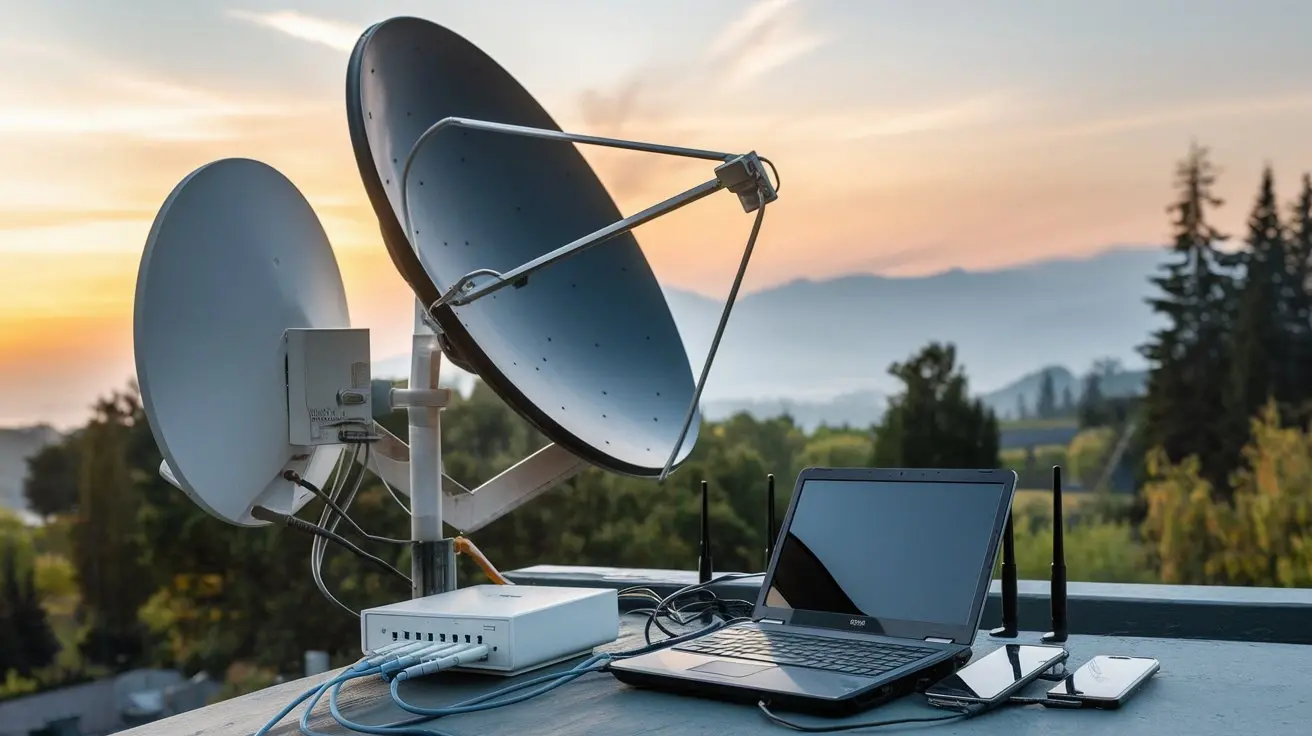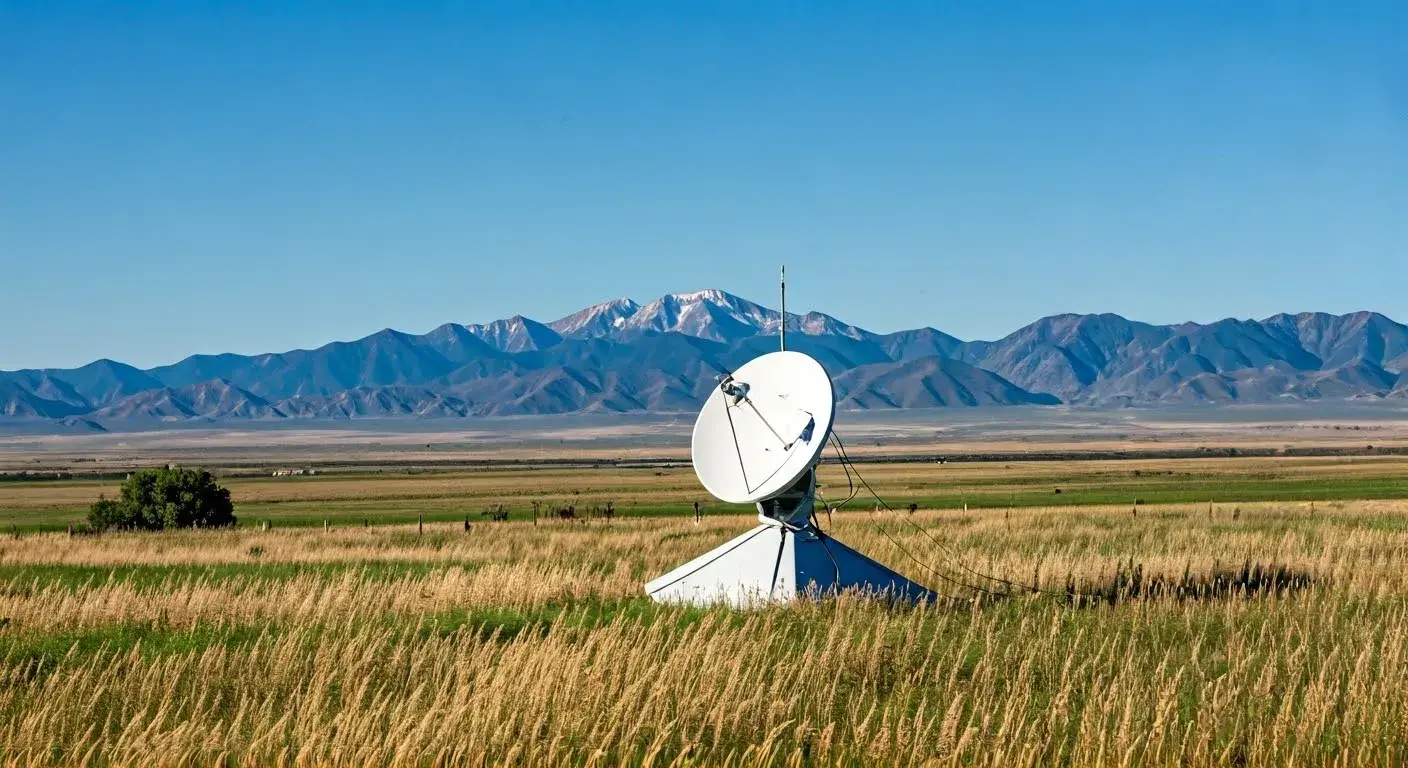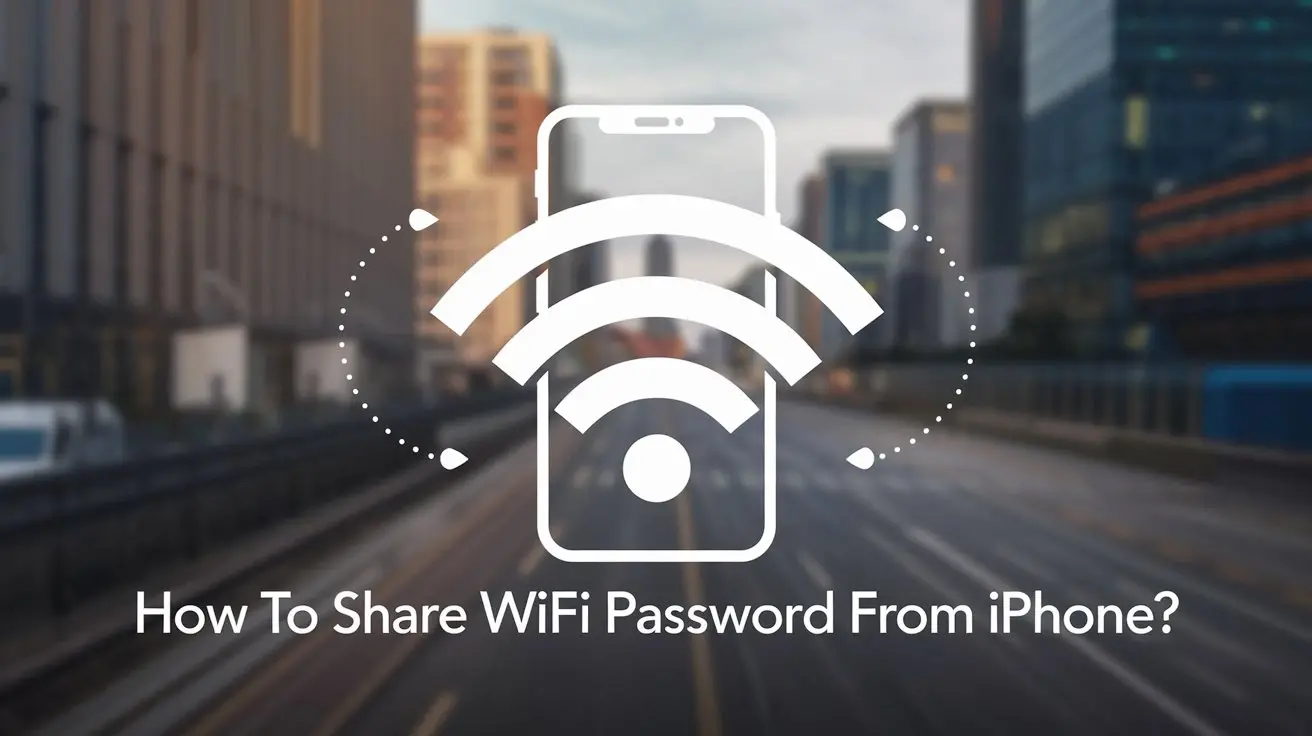
Have you been using satellite internet to connect your computer to the Internet? Probably, you have experienced poor connectivity, especially when it is raining or stormy outside. But that leaves us with several questions that are vital to answer: Why does satellite internet go out in bad weather, and what can be done to mitigate this?
How Satellite Internet Works
Satellite internet is the connection of data through a satellite that is near the Earth and the place where the internet connection is required. It transmits and receives data with ground stations that are linked to the broader Internet network.
This implies that for an internet connection, your satellite dish should be able to get a direct view of the satellite without any hindrance. However, this satellite link may be disturbed due to heavy rain; snow or storm clouds get in between the connections.
Why Does Rain Hinder Satellite Internet Connection?
Rain does not hinder SAT signals up in space as if it were a physical barrier coming in between the SAT and the signals. But storm clouds and precipitation can reduce or even fully interfere with the signal between your satellite dish and the satellite.
Satellite signals can be blocked by heavy rains or snow and therefore cannot transmit wireless signals effectively. Finally, atmospheric interference, if strong enough, can cause a loss of lock or, in other words, disrupt the link between the satellite equipment and the satellite above.
Even when the conditions are as mild as light rain or even snow, it is possible to experience a significant decrease in the connection quality. In adverse weather conditions, especially when there is precipitation, the internet speed might be slow, the latency may be high, or for a while, you are completely disconnected.
Satellites are an indispensable part of space exploration and modern communication; however, their reliability remains an issue, so here are some tips on how to improve it.
While you can’t change the weather or completely prevent rain, you can take steps to maximize your internet uptime during storms:
Make sure that your satellite dish is installed well with no hindrance in its straight-shot path.
For the dish and microwave, ensure you get a quality one, and even better if it is a dish designed for home use.
Check cables, connectors, and other hardware for wear or signs of malfunction.
If this becomes a common issue, contact your provider to probably file a complaint on the issue because, even if the sky is clear, the signal should not be lost.
If outages are very frequent, then it may be advisable to change providers or technology. There are also satellite companies that provide weather-proof equipment or a redundancy option that uses cell data, which switches over when your satellite internet goes bad.
The Bottom Line
Satellite internet does tend to lag or cut out when it becomes windy or rainy or if there is any kind of storm happening outside. This “rain fade” is a phenomenon whereby there is interference in the radio signal directions between the dish on the ground and the satellite equipment in space.
Even though rainy days are unavoidable, selecting the most suitable provider, ensuring that equipment is installed correctly, and having contingencies can reduce the number of connectivity issues experienced even on a rainy day.





